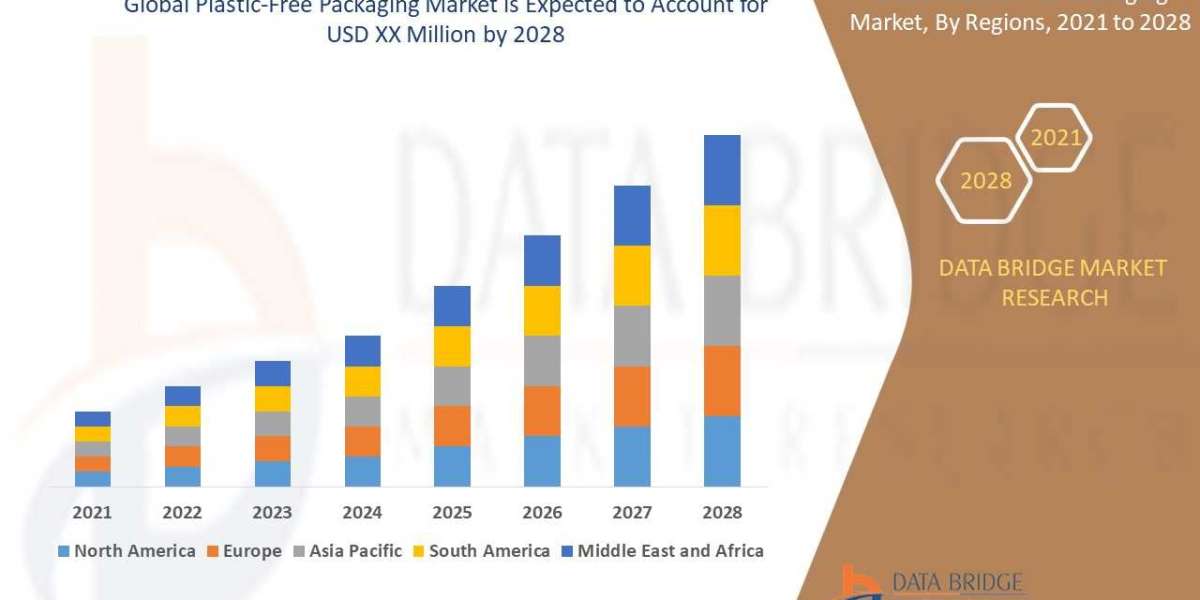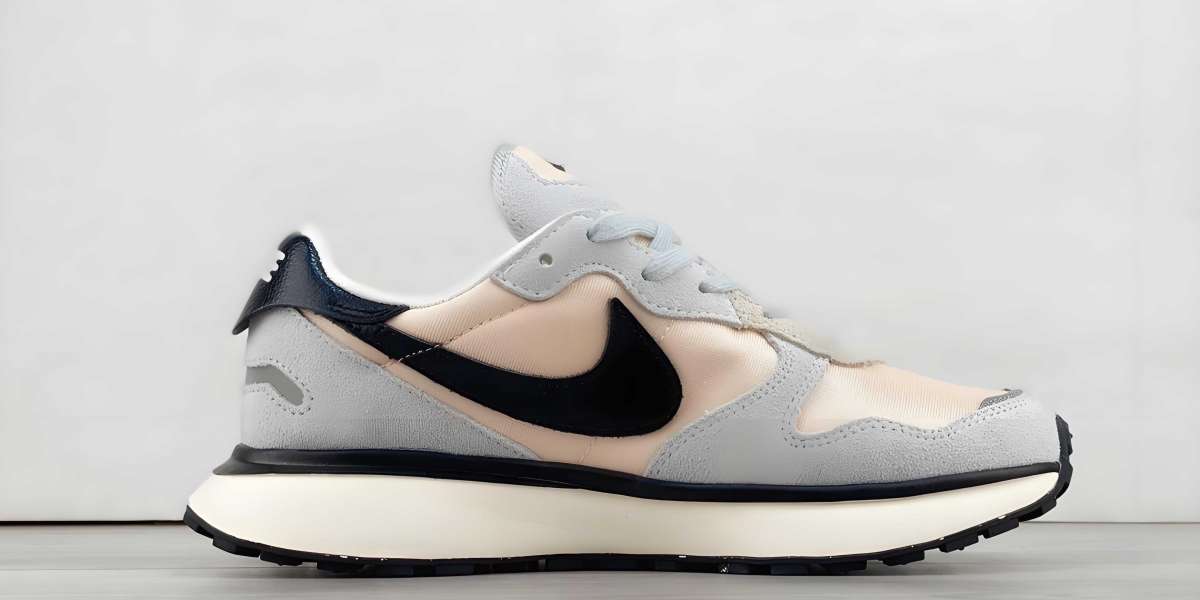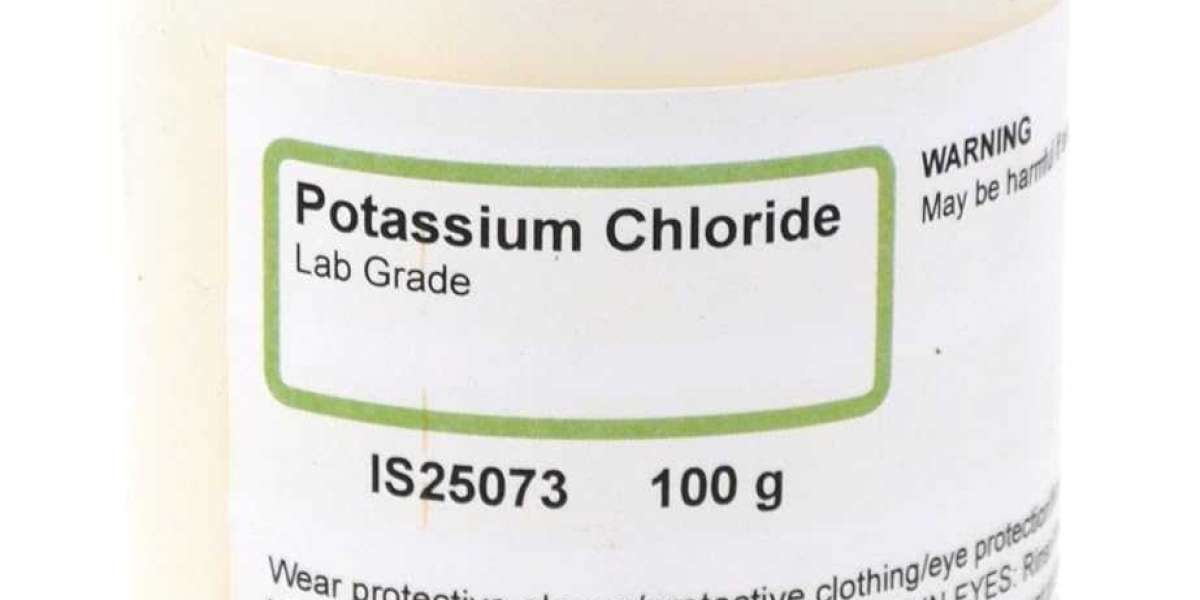"Plastic-Free Packaging Market – Industry Trends and Forecast to 2028
Global Plastic-Free Packaging Market, By Material (Metal, Paper, Glass, Others), Packaging Product (Pouches, Boxes, Tubes, Blisters and Strips, Bottles and Jars, Cartons, Trays, Cans), End-Use (Cosmetics, Food and Beverages, Pharmaceutical, Consumer Products), Country (U.S., Canada, Mexico, Brazil, Argentina, Rest of South America, Germany, France, Italy, U.K., Belgium, Spain, Russia, Turkey, Netherlands, Switzerland, Rest of Europe, Japan, China, India, South Korea, Australia, Singapore, Malaysia, Thailand, Indonesia, Philippines, Rest of Asia-Pacific, U.A.E, Saudi Arabia, Egypt, South Africa, Israel, Rest of Middle East and Africa) Industry Trends and Forecast to 2028
Access Full 350 Pages PDF Report @
https://www.databridgemarketresearch.com/reports/global-plastic-free-packaging-market
The plastic-free packaging market is expected to witness market growth at a rate of 7.31% in the forecast period of 2021 to 2028. Data Bridge Market Research report on plastic-free packaging market provides analysis and insights regarding the various factors expected to be prevalent throughout the forecast period while providing their impacts on the market’s growth. The rise in the consciousness towards environment is escalating the growth of plastic-free packaging market.
**Segments**
- Based on material type, the plastic-free packaging market can be segmented into paper, cardboard, glass, metal, and others. Paper-based packaging is witnessing significant demand due to its eco-friendly nature and recyclability. Cardboard packaging is also popular for its sustainable attributes and cost-effectiveness. Glass packaging is preferred for its premium look and ability to maintain product quality, especially for food and beverages. The metal segment is growing due to its durability and reusability, making it a popular choice for various products.
- By packaging type, the market can be categorized into pouches, bags, wraps, containers, and bottles. Pouch packaging is gaining traction for its convenience and lightweight nature. Bags are widely used for various applications, including grocery shopping and retail merchandise. Wraps offer a sustainable alternative to plastic films for preserving food and other products. Containers and bottles provide durable and reusable options for storing different items.
- On the basis of application, the plastic-free packaging market includes food beverage, healthcare, personal care, and others. The food beverage industry is a major consumer of sustainable packaging solutions to reduce environmental impact and meet consumer preferences. The healthcare sector is adopting plastic-free packaging for pharmaceuticals and medical supplies to ensure product safety. Personal care products, such as cosmetics and toiletries, are increasingly packaged in eco-friendly materials to appeal to environmentally conscious consumers.
**Market Players**
- Some of the key players in the plastic-free packaging market are Amcor Limited, Mondi, Smurfit Kappa, Huhtamaki, DS Smith, Tetra Pak International S.A., Sonoco Products Company, Sealed Air, Eco-Enclose, and WestRock Company. These companies are investing in research and development to innovate sustainable packaging solutions and expand their product portfolios. Collaboration with suppliers and recyclers is essential for ensuring the availability of eco-friendly materials and promoting circular economy practices in the packaging industry.
- Emerging players like Vegware, Parkside Flexibles (Europe) LimitedThe plastic-free packaging market is witnessing significant growth driven by increasing environmental concerns, stringent regulations, and shifting consumer preferences towards sustainable products. The segmentation of the market based on material type highlights the diverse options available to manufacturers and consumers. Paper and cardboard packaging are leading materials due to their eco-friendly nature and recyclability, catering to the demand for sustainable solutions. Glass and metal packaging segments are growing in popularity for their premium quality, durability, and reusability, making them suitable for various applications.
Packaging type segmentation offers insights into the different formats available in the plastic-free packaging market. Pouches are gaining popularity for their convenience and lightweight design, meeting the needs of on-the-go consumers. Bags, wraps, containers, and bottles provide versatile options for packaging various products, each offering unique benefits in terms of sustainability, durability, and functionality. The market's diverse packaging types cater to the specific requirements of different industries and consumer preferences.
The application segmentation of the plastic-free packaging market reflects the diverse sectors leveraging sustainable packaging solutions. The food beverage industry is a key driver of demand for eco-friendly packaging to reduce environmental impact and address consumer demands for sustainable practices. The healthcare and personal care sectors are also adopting plastic-free packaging to ensure product safety, meet regulatory requirements, and appeal to environmentally conscious consumers. The broad application scope of plastic-free packaging underscores its relevance across industries and its contribution to sustainable practices.
Key players in the plastic-free packaging market are driving innovation and sustainability through research and development initiatives. Companies such as Amcor Limited, Mondi, and Huhtamaki are investing in sustainable packaging solutions to meet market demands and regulatory requirements. Collaboration with suppliers and recyclers is crucial for ensuring a seamless supply chain of eco-friendly materials and promoting circular economy practices in the packaging industry. Emerging players like Vegware and Parkside Flexibles are introducing new insights and technologies, contributing to the evolving landscape of plastic-free packaging solutions.
In conclusion, the plastic-free packaging market's segmentation based on material type, packaging type**Global Plastic-Free Packaging Market**
- **Material**: The market segmentation based on material type includes metal, paper, glass, and others. Metal packaging is favored for its durability and reusability, while paper-based packaging is in high demand for its eco-friendly nature and recyclability. Glass packaging offers a premium look and product quality maintenance, especially for food and beverages.
- **Packaging Product**: The plastic-free packaging market categorizes packaging types into pouches, boxes, tubes, blisters and strips, bottles and jars, cartons, trays, and cans. Pouches are gaining popularity for their lightweight and convenience features, while boxes and cartons provide versatility in packaging various products.
- **End-Use**: The applications of plastic-free packaging span across industries such as cosmetics, food and beverages, pharmaceuticals, and consumer products. The food and beverage sector is a major driver of sustainable packaging solutions to meet consumer expectations and reduce environmental impact. Cosmetic products are increasingly packaged in eco-friendly materials to appeal to environmentally conscious consumers.
- **Countries**: The plastic-free packaging market spans across regions including the U.S., Canada, Mexico, Brazil, Argentina, Germany, France, Italy, U.K., Japan, China, India, Australia, U.A.E, Saudi Arabia, South Africa, and others. This global market analysis highlights the diverse geographical footprint and opportunities for market growth in different regions.
The global plastic-free packaging market is experiencing significant growth driven by environmental concerns, regulations, and consumer preferences
Table of Content:
Part 01: Executive Summary
Part 02: Scope of the Report
Part 03: Global Plastic-Free Packaging Market Landscape
Part 04: Global Plastic-Free Packaging Market Sizing
Part 05: Global Plastic-Free Packaging Market Segmentation by Product
Part 06: Five Forces Analysis
Part 07: Customer Landscape
Part 08: Geographic Landscape
Part 09: Decision Framework
Part 10: Drivers and Challenges
Part 11: Market Trends
Part 12: Vendor Landscape
Part 13: Vendor Analysis
Plastic-Free Packaging Key Benefits over Global Competitors:
- The report provides a qualitative and quantitative analysis of the Plastic-Free Packaging Market trends, forecasts, and market size to determine new opportunities.
- Porter’s Five Forces analysis highlights the potency of buyers and suppliers to enable stakeholders to make strategic business decisions and determine the level of competition in the industry.
- Top impacting factors major investment pockets are highlighted in the research.
- The major countries in each region are analyzed and their revenue contribution is mentioned.
- The market player positioning segment provides an understanding of the current position of the market players active in the Personal Care Ingredients
Browse Trending Reports:
Semi Finished Pastry Ingredients Market
Rubber Peptizers Market
Hydroponic Under Floor Heating Systems Market
Hand Holes Market
Nuclear Imaging Devices Market
Metabolic Testing Market
Active Pharmaceutical Ingredient Api Market
Chromatography Solvents Market
Medical Device Connectivity Market
Empty Capsules Market
Temperature Sensor Market
Video Surveillance Service Market
Hexamethylenediamine Market
Fusion Splicer Market
Critical Care Equipment Market
Professional Dental Care Market
Advanced Ceramics Market
Hla Typing Transplant Market
About Data Bridge Market Research:
Data Bridge set forth itself as an unconventional and neoteric Market research and consulting firm with unparalleled level of resilience and integrated approaches. We are determined to unearth the best market opportunities and foster efficient information for your business to thrive in the market. Data Bridge endeavors to provide appropriate solutions to the complex business challenges and initiates an effortless decision-making process.
Contact Us:
Data Bridge Market Research
US: +1 614 591 3140
UK: +44 845 154 9652
APAC : +653 1251 975








